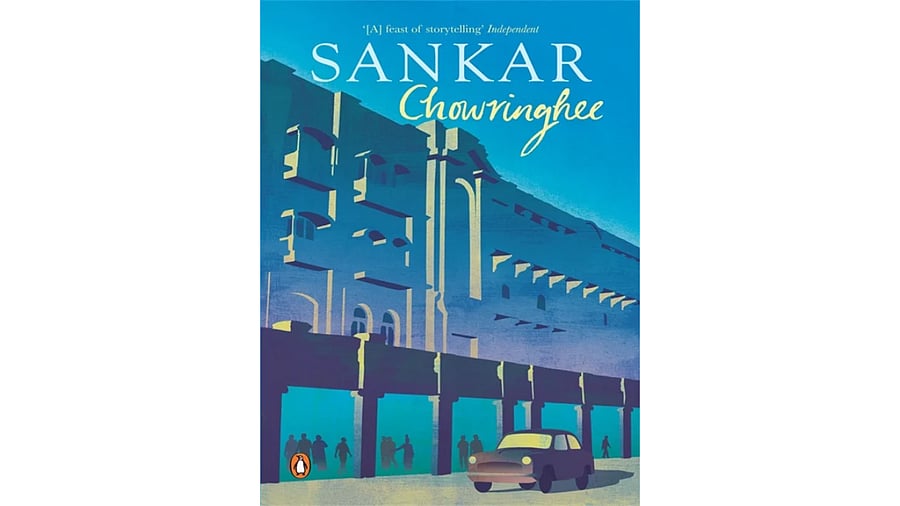
Sankar's Chowringhee translated by Sinha.
One of India’s most celebrated translators, Arunava Sinha is often credited with carrying Bengali literature across borders with lyrical precision. From classics by Buddhadeva Bose to contemporary voices, his translations have won many awards and international acclaim, establishing him as a bridge between languages, cultures and imaginations. Excerpts from an interview.
Do you remember the moment when translation became more than just a linguistic exercise, when it felt like an artistic calling?
I never really did it as a linguistic exercise, except maybe once or twice, just to see what it felt like. But the moment I started translating full-length stories, it was very much an artistic enterprise. That began in Kolkata, after I graduated. We had started a city magazine, and we used to publish one translated short story every month. So that’s when it really began for me.
Sankar’s Chowringhee was the first translation that brought you into the literary spotlight. What made that book your starting point, and how did it shape your sensibility as a translator?
Chowringhee was my first full-length translation, and I did it simply because the author, Sankar, asked me to, after I had translated one of his short stories. Honestly, I knew nothing about translating a novel. I’d only worked on short stories till then. I just went ahead and did it, in my spare time, after office hours, on the office computer. And that’s really when I realised that translation is its own thing; it’s a distinct, deeply satisfying activity.
Interestingly, the book was published only about 14 or 15 years later. In the meantime, I didn’t do any translation; I was just working as a journalist, living a regular life. But when Chowringhee finally came out, it changed everything for me. It told me this was something I could actually do. So in that sense, I owe everything to Chowringhee.
What’s your strategy for balancing faithfulness to language with resonance for a contemporary reader?
I don’t worry much about the contemporary reader. I’m contemporary myself, so my writing naturally reflects that.
As a translator, the real task is balancing registers, voices, and dialects. It starts with closely listening to the original text, not just reading it. You aim to create a version in the target language that corresponds, not copies. But when it comes to register and voice, it’s not just about reading; you must listen. And it’s that act of listening that allows you to reproduce voices, textures, and tonalities. You use your ear as much as your eyes.
Which book or passage has challenged you the most, and perhaps, changed you in the process?
Translating Khwabnama by Akhtaruzzaman Elias was particularly tough; it’s layered and intense. Dozakhnama by Rabisankar Bal was also demanding, filled with passion that’s hard to convey in English. Then came Sasthipada Chattopadhyay’s Duryodhaner Nani, written in highly Sanskritised Bengali; just deciphering it was a task. But really, every book is a new challenge because each voice is unique and capturing that faithfully is the translator’s real work.
In a multilingual country like India, what role do you think translation can, and must, play in the years ahead?
Translation is the single most crucial tool for literature in a country like India. Most of us can read only one or two languages, so without translation, we’d miss out on each other’s stories entirely. It’s through translation that we can begin to understand India in its full literary richness, by reading voices from across regions and languages. That’s the only way to build a truly shared cultural space.
How do you see the evolving role of technology, especially AI, in the world of literary translation?
I’m not sure yet. So far, AI hasn’t been very useful for literary translation; it works better for manuals, documents, or real-time interpretation. Literary translation demands a kind of nuance AI hasn’t mastered. Will it get there? Maybe. I’m open to exploring it, possibly through a research program.
What inspired your transition from translator to publisher with Chowringhee Press?
I’ve long believed in the need for a translation-focused press, one that isn’t burdened by the pressure to be commercially successful or profit-driven, which often shapes the choices of big publishers. The idea is to create a low-cost, low-investment translator-led collective, where translators can bring in their own books and retain the full proceeds from sales. It’s a different model, where there’s no reliance on traditional distribution or bookstores. We’re going direct to readers, and I’m hoping we can generate enough interest.